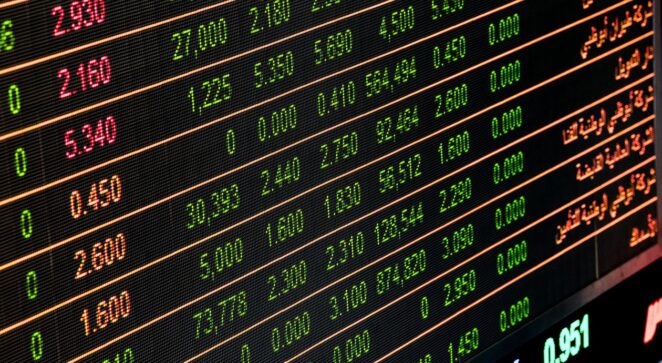The world we live in is interconnected in ways that previous generations could only dream of.
In today’s globalized society, events happening on one side of the planet can send shockwaves through financial markets worldwide.
This intricate web of economic interdependence has given rise to what we call the “global ripple effect.”
In this article, we’ll dive deep into the dynamics of how the economy shapes the world market, unraveling the intricate threads that connect nations, industries, and individuals.
The Butterfly Effect of Economics

The idea that a butterfly flapping its wings in one part of the world can set off a chain of events leading to a hurricane in another part of the world is known as the butterfly effect.
While this notion is often associated with chaos theory, it holds a degree of truth in the realm of economics.
Economies are incredibly complex systems, influenced by a multitude of factors, both internal and external.
When we examine how the economy shapes the world market, we must consider these factors as interconnected components of a delicate ecosystem.
At the heart of economics lies consumer choice. Every time you decide what to buy, where to invest your money, or even whether to save or spend, you’re contributing to the economic landscape.
These individual choices, when multiplied across millions or even billions of people, create a staggering web of economic interactions
Consider the example of a consumer choosing to buy an electric car rather than a traditional gasoline-powered vehicle. This single choice sends a signal to the automotive industry that there is a demand for electric vehicles.
As more people make similar choices, automakers respond by increasing their production of electric cars and investing in green technologies. This not only affects the automotive sector but also the entire supply chain, from battery manufacturers to renewable energy providers.
Consumer choices can also have a significant impact on regional and global economies. For instance, a surge in demand for organic produce can lead to increased cultivation of organic crops, benefiting farmers and rural communities.
Similarly, preferences for locally sourced products can stimulate local economies and reduce the carbon footprint associated with long-distance transportation.
Trade and Globalization
One of the most significant drivers of the global ripple effect is international trade and globalization. The movement of goods, services, and capital across borders has reached unprecedented levels. Countries are no longer isolated economic entities; they are part of a vast and intricate network of global trade.
When a major economy experiences a downturn or a significant economic event, its effects ripple out to its trading partners.
For example, when the United States, the world’s largest economy, faced the 2008 financial crisis, shockwaves were felt across the globe. Stock markets plummeted, currencies fluctuated wildly, and global economic growth slowed down.
Financial Markets: The Heart of the Global Economy

Financial markets are at the core of the global economic system, serving as the nerve center where information, capital, and assets flow. These markets are highly sensitive to economic conditions and news. Small changes in economic indicators or geopolitical events can trigger significant market movements.
Stock Markets: Stock exchanges around the world are interconnected. News of economic instability or growth in a major market can trigger corresponding movements across the globe. This means for a prime broker, managing client portfolios in a landscape where market sentiment can change rapidly.
Currency Markets: Currency exchange rates are influenced by a myriad of factors, including interest rates, inflation, and political stability. Exchange rate fluctuations can have far-reaching implications for international trade and investment.
Commodity Markets: The prices of commodities like oil, gold, and agricultural products are intimately tied to the global economy. These prices can impact inflation rates and affect the cost of living for people in different countries.
Geopolitical Events and Risk Perception
Geopolitical events, such as conflicts, trade disputes, and political instability, can send shockwaves through the world market. These events can create uncertainty and change risk perceptions among investors, leading to market volatility.
For instance, a trade war between two major economies can disrupt supply chains and reduce global trade, affecting industries and markets far beyond the immediate participants.
Similarly, political instability in an oil-producing region can lead to fluctuations in oil prices, impacting economies worldwide.
The Role of Central Banks

Central banks play a pivotal role in shaping the world market through their monetary policies. Decisions regarding interest rates, money supply, and quantitative easing can have a profound impact on financial markets and currencies.
When central banks in major economies like the Federal Reserve in the United States or the European Central Bank make policy announcements, investors around the world pay close attention.
Changes in interest rates can influence investment decisions, asset prices, and the overall flow of capital in the global financial system.
Technology and Information Flow
In the digital age, information flows across borders at the speed of light. News, economic data, and market analyses are disseminated instantly through the Internet and financial news networks. This rapid flow of information can amplify the global ripple effect.
For instance, a significant economic event or policy announcement in one part of the world can trigger automated trading algorithms that execute trades across various markets within milliseconds. This high-frequency trading can exacerbate market movements.
Investor Behavior and Psychology
Lastly, we must not underestimate the role of human behavior and psychology in shaping the world market. Investor sentiment, fear, and greed can drive market movements that sometimes defy rational analysis.
During periods of economic uncertainty, investors may engage in herd behavior, causing markets to swing in one direction or another. The fear of missing out (FOMO) or the fear of losing everything (FOLI) can lead to rapid market shifts.
Navigating the Global Ripple Effect
Given the intricate web of factors that influence how the economy shapes the world market, how can investors and individuals navigate this complex landscape?
- Diversification: Diversifying your investments across different asset classes, regions, and industries can help mitigate risk. When one market is down, another may be up.
- Stay Informed: Keeping abreast of economic news and global events is crucial. Understanding the context of market movements can help you make informed decisions.
- Long-Term Perspective: Taking a long-term view of your investments can help you ride out short-term market volatility. Trying to time the market can be challenging and often counterproductive.
- Risk Management: Consider risk management strategies, such as setting stop-loss orders or using hedging instruments to protect your investments during turbulent times.
- Seek Professional Advice: Financial advisors and professionals can provide valuable insights and guidance tailored to your financial goals and risk tolerance.
Conclusion

The global ripple effect is a testament to the interdependence of economies and financial markets worldwide.
Understanding how the economy shapes the world market is essential for investors, policymakers, and anyone affected by the dynamics of the global financial system.
In this interconnected world, every economic event, policy decision, or market movement has the potential to send ripples that touch us all.
By staying informed, diversifying wisely, and adopting a long-term perspective, we can navigate these waters with confidence and resilience.




